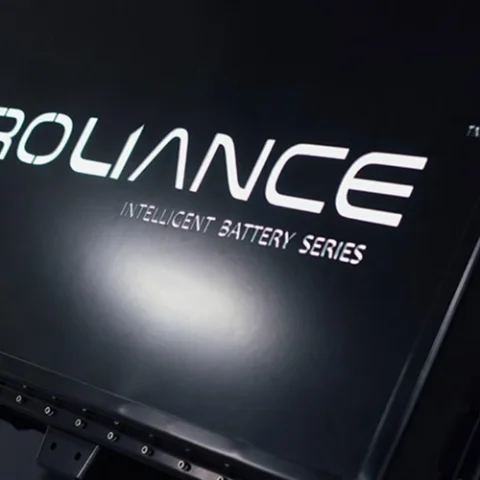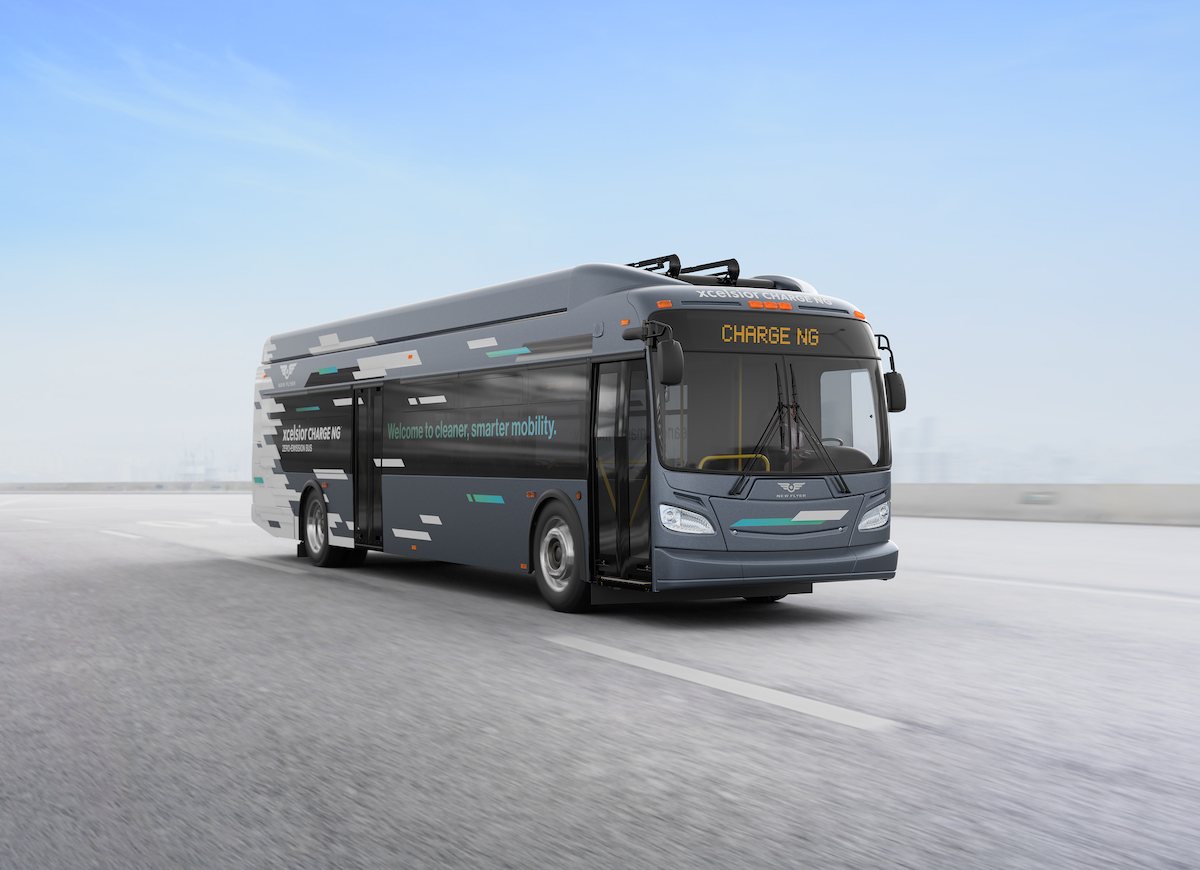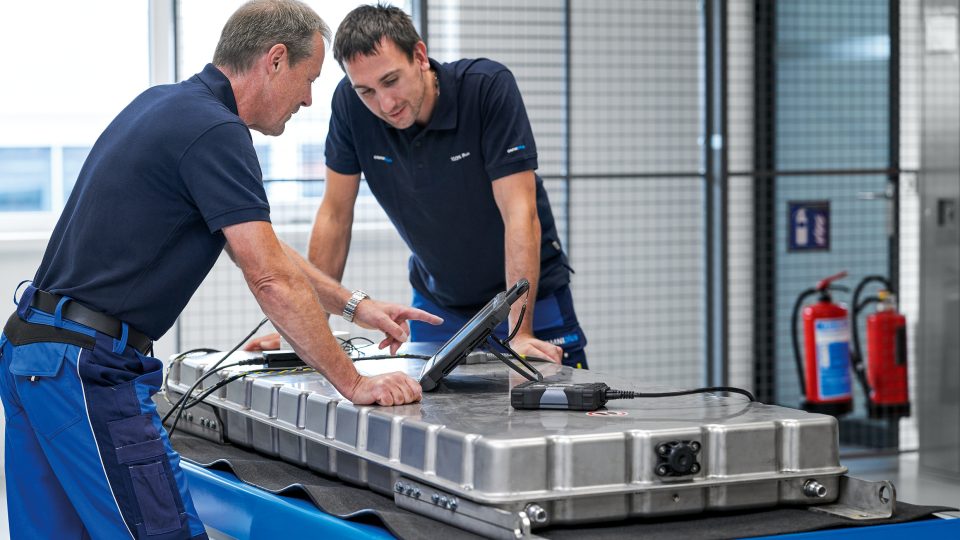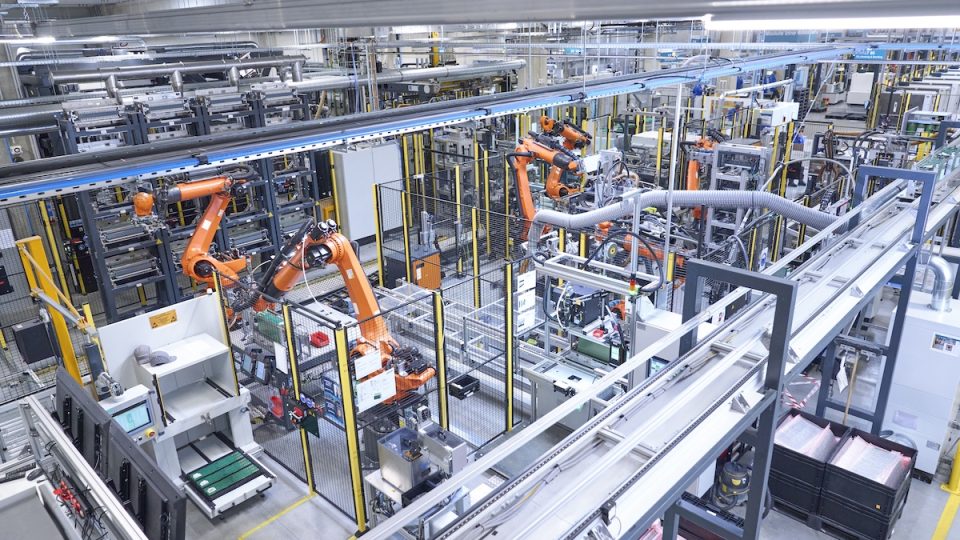New Flyer sources battery modules from American Battery Solutions
American Battery Solutions (ABS) has signed a multi-year contract with New Flyer to supply custom battery packs for the manufacturer’s newest 35-, 40-and 60-foot battery-electric transit buses. NFI is now launching ABS batteries into bus production for customer deliveries starting in the first quarter of 2024. The Li-Ion batteries were fully designed, tested, and validated […]

American Battery Solutions (ABS) has signed a multi-year contract with New Flyer to supply custom battery packs for the manufacturer’s newest 35-, 40-and 60-foot battery-electric transit buses.
NFI is now launching ABS batteries into bus production for customer deliveries starting in the first quarter of 2024. The Li-Ion batteries were fully designed, tested, and validated by ABS at its engineering and development center located in Lake Orion, MI. The production of these batteries will be done at ABS’manufacturing plant in Springboro, OH.
ABS operates a 120,000 sq. ft. technical center in Michigan and a dedicated 170,000 square foot State-of-the Art purpose-built battery manufacturing facility in Ohio. It employs more than 250 people in Michigan, Ohio, and Massachusetts.
ABS battery fits inside NFI existing design
NFI expects that 40% of its 2025 production will be zero-emission buses and is leading the evolution to zero-emission public transportation in North America.
The scalable custom designed pack solution purchased by NFI is based on the ABS ProLiance Intelligent Battery Series architecture and, it is stressed, “fits inside NFI’s existing battery enclosure design, providing an alternate source of supply for NFI’s battery-electric bus contracts and creating opportunity for technology enhancements”.

Design and engineering have been led from ABS’ Michigan Innovation Center in Lake Orion, with the pack production scheduled to begin in the third quarter of 2023 at ABS’ Springboro, OH manufacturing facility.
ABS says it “has secured the cell supply by partnering with world-class cell makers in strategic alliance. These partnerships have resulted in the signing of long-term supply agreements that ensure cell supply through the end of the decade, supporting the NFI ramp along with ABS’ other customer programs”.
ABS batteries for New Flyer
“We are excited and proud to partner with NFI, a company at the forefront of electric-powered public transportation. This contract reflects NFI’s well-placed confidence in ABS’ ability to meet technical and performance requirements at a healthy volume with the competitive cost position,” said Subhash Dhar, ABS Founder, Chairman & CEO. “We have invested over $ 200 million in our state-of-the-art automated pack assembly line and facility, with the capacity to deliver the product NFI needs so that it can continue to lead the electrification of public transportation in North America.”
“Demand for battery-electric buses is accelerating, and NFI is leading the evolution to zero-emission public transportation in North America. Our partnership with ABS will provide NFI with the capacity, flexibility, and resiliency we need as we ramp up production at our facilities across North America,” said Paul Soubry, President, and CEO, NFI. “ABS has made significant investments in their pack assembly and battery technology, providing NFI with industry leading solutions. We look forward to working together with ABS to advance battery technology within the public transportation industry.”







